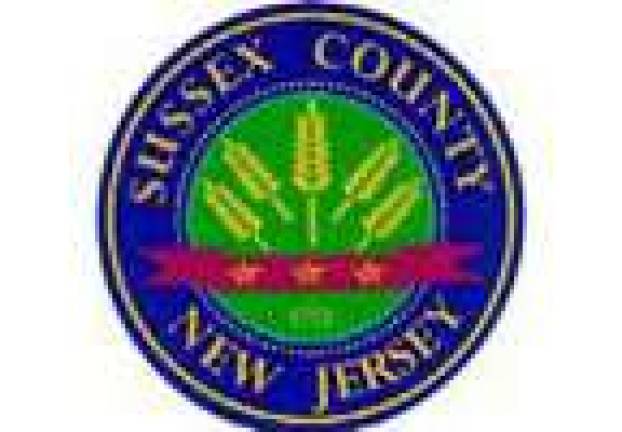Freeholders approve settlement

By Nathan Mayberg
NEWTON — The Sussex County Board of Freeholders decided to settle, rather than continue fighting, a lawsuit over $24 million which a solar energy company has been unable to pay back to the county.
With mayors from around the county calling on the Board of Freeholders to delay a vote to settle a lawsuit over millions of dollars a contractor says it is owed by the solar power company SunLight General Capital, county freeholders decided on Wednesday that the risks of prolonging the suit were too risky.
In one of the strangest twists of agreements, the county was never sued for payments and was not a party to arbitration hearings but found itself not only liable for the attorney fees of the solar power company but also liable for the payments it had to make to the contractor since it had guaranteed $27.7 million in bonds. The county had guaranteed the bonds issued by the Morris County Improvement Authority, and essentially now owes itself about $26 million with interest, County Administrator John Eskilson said.
If that weren’t confusing enough, the settlement agreed upon Wednesday will require the county to pay $12.3 million to Power Partners Mastec LLC, the contractor which was responsible for installing solar panels on municipal buildings throughout Sussex County.
Sussex County’s independent counsel David Weinstein said the money represented funds owed to Power Partners Mastec by SunLight General Capital which had been placed on hold through liens against the solar company.
According to the settlement agreement, the county will have to bond $6.75 million to pay the funds due to Power Partners Mastec LLC.
The county will still owe $26 million on the bonds it took out through the Morris County Improvement Authority.
County leaders are hopeful that by completing the rest of the project that wasn’t done by SunLight General Capital through a new firm, Vanguard Energy Partners, and through the settlement’s provisions giving it title to solar energy certificates and access to federal tax credits, will allow the county to gain revenue to offset the majority of its debt burden.
In the end, the county’s ultimate exposure could be in the $6.5 million range, according to financial estimates made by the county’s financial advisers, which include Gabel Associates. Gabel Associates reviewed the original agreement between the county and SunLight General Capital.
Some speakers on Wednesday raised questions as to why the county was listening to some of the same advisers on its newest agreement.
A statement from Sunlight Attorney Michael S. Stein said the settlement does not suggest SunLight companies admit any wrongdoing, and they dispute all allegations previously made in the lawsuit.
Board of Freeholders Chairman Phil Crabb (R-Franklin), who voted in favor of the original deal in 2011, described what happened with the solar company and contractor as being out of the county’s control, calling it “a train that went off the tracks.”
“It turned out to be a dispute between two private companies,” he said.
Several on Wednesday, including Freeholder Gail Phoebus (R-Andover), attacked the lack of transparency in the board’s decision to withhold details of the settlement until after the vote.
Crabb said he decided to withhold disclosure because he “didn’t want to do anything that would destroy the benefits of the agreement.”
Crabb said the deal was “complicated,” though he said that didn’t mean the public “couldn’t understand it.”
“We just wanted to ensure that there was no chance to derail it,” he said.
All the freeholders said they supported a settlement though Freeholder George Graham (R-Stanhope) also voted against it.
Joining Crabb in voting in favor of the settlement were freeholders Richard Vohden (R-Green) and Dennis Mudrick (R-Sparta).
Weinstein said that by not agreeing to the settlement, the county would simply spend more money on attorney fees and that the settlement would not change.
Phoebus said she wanted to table the vote and delay, saying the language of the agreements had changed in recent days and she didn’t have time to read it all.
“The only people who have not had their say are the people who are being asked to pay for this,” Phoebus said.
Dick Fitch of Vernon told the board, “I’m at a little loss for the information that’s come forward how we got into this mess.”
“Was there no legal oversight?” Fitch asked. “Was there no financial oversight?”
How this happenedSussex County guaranteed $27.7 million bonds issued by the Morris County Improvement Authority for SunLught General Capital in 2011.
The bonds were to pay for solar panels installed on municipal buildings and schools throughout Sussex County. A total of $88 million in bonds were issued for Morris and Somerset counties for similar projects.
SunLight General Capital was the lone bidder on the project.
An evaluation team consisting of Eskilson, Birdall Services Group, NW Financial Group LLC, representatives from Gabel Associaties and lawyers from the firm of Inglesino, Pearlman, Wyciskala & Taylor took part in evaluating the project, Eskilson said.
The Sussex County Board of Freeholders unanimously approved the contract with SunLight General Capital, a firm with offices in New York City and Hillsborough.
Power Partners Mastec LLC has claimed it is owed more than $60 million for purchasing and installing solar panels on municipal buildings in Sussex, Morris and Somerset counties. SunLight General Capital has fought the case in court.
Meanwhile, Sussex County has been on the hook for the attorney fees of SunLight General Capital.
Last year, a federal mediator ordered the county to pay $920,000 in attorney fees for SunLight General Capital.
Eskilson said the lawsuits stem from financial issues related to a crash in the solar power energy market, changes in design, and change orders which Power Parners Mastec LLC claimed they were not paid for.